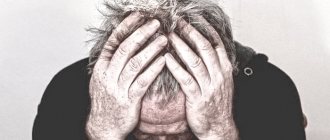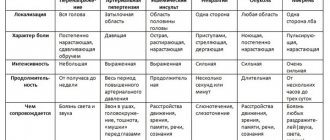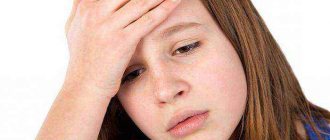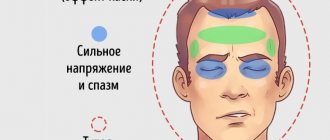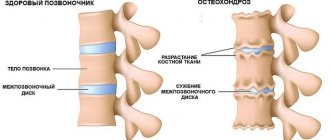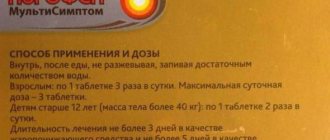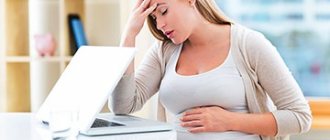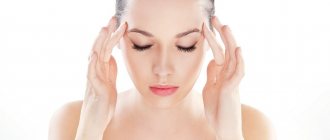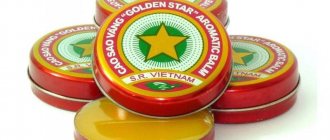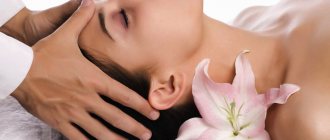Every person is familiar with headaches. Some people experience it all the time, others very rarely. The headache can be weak, throbbing, pressing, and can cause darkening of the eyes. The duration of a headache can be completely different, from a few minutes to several days. The best way to get rid of this scourge is a headache pill.
Nursing mothers may also experience headaches and sometimes they simply cannot bear them. But what can you do, because breastfeeding women cannot take all medications. Most medications are absorbed into the blood and pass into breast milk, and then into the baby’s body.
Some components contained in medications can cause poisoning, colic, or an allergic reaction in a child. And some potent substances can cause a child’s body to retard growth and development. It is for these reasons that the choice of medications for a nursing woman must be chosen very carefully. Even headache pills require consultation with a doctor. If it is not possible to consult a doctor, then at least carefully study the instructions for taking the drug.
Why does my head hurt? Causes
There can be many reasons why a mother may develop headaches. It happens that before the birth of a child, a woman almost did not know about the existence of such a problem, but regular night awakenings, nutritional disruptions and constant worry about the baby have a detrimental effect on her health. Let's highlight the main reasons why a headache may occur:
- tension pain - most common and associated with lack of sleep, stress, etc.;
- vascular problems: hypertension or hypotension, vegetative-vascular dystonia;
- migraine attacks;
- weather sensitivity;
- osteochondrosis of the cervical spine;
- postpartum depression;
- reaction to weather conditions: exposure to cold wind or heat;
- long stay in a stuffy room;
- hormonal disorders;
- intoxication (alcohol, household chemicals, smoking, inhalation of carbon monoxide);
- a consequence of ARVI or diseases of the ENT organs (when the paranasal sinuses become inflamed);
- fasting (leads to a decrease in blood sugar levels and dilation of brain vessels);
- taking certain foods or abruptly giving them up (coffee).
Types of headaches
This is not a complete list, because there are from 40 to 50 reasons that cause a woman to suffer from headaches. I am glad that in most cases the same drugs approved for lactation can help.
Pain in the head varies in nature. The pain can be: throbbing, aching, dull, sharp, localized in various places of the head. There are many factors that determine why a mother gets a headache while breastfeeding.
- Excessive fatigue and lack of sleep are the main and most common causes. Caring for a baby, night feedings, and household fuss take up a lot of time and effort.
- Excitement for the baby, which may be accompanied by anxiety if a disease has been diagnosed. Headaches appear during breastfeeding due to nervous experiences.
- May suffer from migraines - severe throbbing pain. Appears due to lack of sleep, severe fatigue, and nervous experiences. Such pain is a companion to nervous diseases and occurs when blood circulation in the vessels is disrupted.
- There are other causes of headaches: hypertension, interruptions in blood pressure, osteochondrosis of the cervical vertebra.
- Any intestinal diseases. If the pain syndrome is accompanied by attacks of nausea, pain in the abdominal area - these are signs of poisoning.
- She is a companion to colds and ENT diseases.
- Abuse of coffee, smoking, alcoholic beverages. Some mothers continue these habits during the breastfeeding period.
- Intoxication from chemicals used in everyday life.
- Side effects from the use of certain drugs (contraceptives).
There are many causes of headaches. Doctors identify more than two hundred possible options! The main cause of illness in a nursing mother is fatigue, overwork and lack of sleep. Taking care of a baby takes a lot of energy. In addition, the mother is forced to get up several times a night to feed the baby or change the diaper. As a rule, such pain goes away as soon as the mother rests. That’s why it’s so important to get enough sleep, take long walks and relax during lactation!
There is a type of headache called migraine. This is a throbbing pain in a specific part of the head, which also occurs due to lack of sleep and overwork, due to severe stress. In addition, migraines plague people with nervous diseases and dysregulation of blood vessel tone.
Hypertension and high blood pressure are another cause of headaches. In this case, consult a doctor for treatment!
If the headache is accompanied by nausea, vomiting and abdominal pain, then we are talking about poisoning. In case of intoxication, it will immediately clear the stomach. To do this, use a solution of potassium permanganate, drink more plain drinking water. You can take activated carbon. How to cope with poisoning during lactation, read here.
Headache is a concomitant symptom of a number of diseases and infections. Colds are common. How to treat colds, acute respiratory infections and acute respiratory viral infections during lactation, read in the section “If mom is sick.” In addition, the head may hurt due to lactostasis and mastitis. These are dangerous diseases for women that must be treated under the supervision of a doctor!
Prevention
The best way to combat headaches is to prevent them:
- You should try to rest with your child during the day. Naturally, there are a lot of things to do, but without sleep, you won’t be able to do them anyway.
- Frequent walks in the fresh air.
- Fasting or dieting while breastfeeding is simply unacceptable!
- No stress. If you can’t solve the problem, it’s better not to try and shift it to someone else.
- You need to eat proper, healthy and varied food. No fast food, sandwiches or processed foods. Only wholesome homemade food.
- It is better to completely avoid tea, coffee, chocolate and other products that contain caffeine.
- There is probably no need to mention again about the dangers of nicotine and alcohol.
To avoid suffering from headaches, it is best to follow tips on preventive measures
If you cannot do without medications, then during administration, it is very important to carefully monitor the child’s well-being and if his anxiety is noted, you should stop taking it immediately
Be that as it may, no self-medication. Only an experienced doctor is able to prescribe the correct therapy that will not harm the young mother and her child.
Are there any approved treatments?
While there are a lot of medications from different groups to lower blood pressure, hypotension is much more difficult to treat from a medical point of view. All adaptogens and biostimulants such as Ginseng and Eleutherococcus tinctures are on the prohibited list. They should only be taken if your doctor thinks the benefits outweigh the risks.
Regardless of the direction in which your blood pressure changes, you should consult a doctor about treatment.
Caffeine, penetrating into milk, also has a negative effect on the child, making him excited and restless. The safest recommendations for mothers who have breastfed children are walks in the fresh air and special gymnastics to raise and strengthen tone, as well as taking a contrast shower.
While there are a lot of medications from different groups to lower blood pressure, hypotension is much more difficult to treat from a medical point of view. All adaptogens and biostimulants such as Ginseng and Eleutherococcus tinctures are on the prohibited list. They should only be taken if your doctor thinks the benefits outweigh the risks.
Regardless of the direction in which your blood pressure changes, you should consult a doctor about treatment.
What to take for headaches during breastfeeding if it is caused by mental strain and stress? Women often experience depression after childbirth. It can strain the brain and cause discomfort. Of course, you can eliminate them using the drugs described above.
You need to know that these drugs will not relieve you of pain that has arisen as a result of an inflammatory process, a cold, or the growth of a tumor in the brain.
"Diclofenac"
What can you take for headaches while breastfeeding if a migraine develops? Doctors strongly do not recommend self-medication in this case. Contact a specialist to prescribe a correction.
Most often, doctors prescribe formulations containing diclofenac to nursing mothers. In this case, therapy should be carried out in combination with taking an antiemetic drug. The most commonly used medications are: Diclovit suppositories, Diclonac tablets.
These compositions effectively anesthetize the head area not only for migraines. They can eliminate any unpleasant sensation. However, they should not be used to treat pain caused by lack of sleep or nervous tension. A large amount of the active substance in the blood can negatively affect the health and development of the baby.
What can you drink for headaches while breastfeeding? The first thought that comes to mind is the use of No-Shpa or Drotaverine tablets.
These drugs are antispasmodics. They act on smooth muscles and promote muscle relaxation. The medicine effectively fights pain caused by lack of sleep or fatigue. The drug is also able to eliminate unpleasant sensations that arise as a result of narrowing of the blood vessels in the brain.
Remember that the remedy is absolutely useless for pain caused by colds and tumors. Also, the drug will not help you if you have a migraine.
What to drink for headaches while breastfeeding? You can use products based on an active substance called nimesil. This includes the Nimulid suspension and Nise tablets.
These drugs represent a number of non-steroidal and anti-inflammatory drugs. They safely relieve pain of varying severity. The compositions also act on inflammatory processes, suppressing them. That is why such medications can relieve migraines, pain caused by colds, and discomfort caused by fatigue or lack of sleep.
Remember that you must strictly follow the instructions and do not exceed the indicated dosage of the drug yourself. The smaller your portion, the safer this treatment will be for the baby.
Prohibited drugs
Some medications should not be taken while breastfeeding, as they contain active ingredients that are harmful to babies.
The following medications should not be used during lactation:
- "Analgin" - helps to quickly relieve spasms, but is prohibited when feeding. The drug has a toxic effect on blood, milk, and disrupts kidney function and hematopoiesis.
- Potent analgesics - “Pentalgin”, the medicine “Sedalgin”, that is, all medications ending in “gin”.
- "Citramon" is one of the popular medicines containing substances that have a toxic effect on a nursing woman and an infant. The medication contains caffeine and aspirin, which stimulate the nervous system and negatively affect the activity of the baby’s liver and brain.
- Aspirin should not be used for the same reason as the drug Citramon. The medicine destroys the baby’s brain and liver cells, negatively affects blood vessels, and can cause ulcers in women.
- Painkillers containing barbituric acid, caffeine and codeine. Acid inhibits the functioning of the nervous system, caffeine disrupts the baby’s sleep, as it has a stimulating effect. Codeine is a narcotic element that causes oxygen starvation.
- Potent medications containing ergotamine. The substance causes nausea, convulsions, and vomiting in infants.
Headache is a fairly common occurrence among women who breastfeed their babies. But the choice of medications should be approached with caution so as not to harm the child.
Prohibited during lactation
Taking medications is carried out after consultation with a doctor, since some of them are prohibited during breastfeeding. Combination drugs are not recommended for use, since they have several active ingredients.
A common remedy because it is truly an effective remedy. It is not recommended for nursing mothers to use. The instructions for the drug contain information that it is not used during breastfeeding. It contains harmful components:
- Caffeine gets into the baby's natural food, has a stimulating effect on him, does not leave the body well, can lead to regurgitation, and puts a strain on the baby's kidneys and liver.
- Aspirin is recognized as a dangerous component and can cause disruptions in the functioning of the liver and brain. Experts say: a one-time dose will not cause significant harm, but continuous use of this drug is prohibited. Citramon analogues: Citropak, Askofen.
Analgin for hepatitis B
This medication effectively relieves headaches without affecting the psyche. But when breastfeeding it is prohibited. In some countries, analgin is excluded from medical practice. The active ingredients cause inhibition of hematopoietic function, interruptions in kidney function, and can cause anaphylactic shock.
- Sulfonamide antibiotics (Biseptol - a common antibiotic used for urinary tract infections, Sulfasalazine - for inflammatory bowel diseases), Chloramphenicol (Levomycetin).
- Gold salts - mainly used in rheumatology for rheumatoid arthritis.
- Lithium - used in psychiatry for manic-depressive psychosis or mania.
- Cytostatics and immunosuppressants - used in oncology and rheumatology.
- Radioactive isotopes are the most commonly used in radiology.
- Some psychotropic drugs (for example, the antipsychotic Haloperidol, used to treat psychosis or calm acute mental illness).
Doctors with extensive experience and decent education will tell you exactly which remedies for headaches during lactation cannot be used. These include all products containing analgesics or other highly active active ingredients - Pentalgin, Tempalgin, Sedalgin, Baralgin, Spazmalgon, Benalgin, Baralgetas, and any other modern drugs with a similar composition.
Their use by a nursing mother is prohibited for a number of reasons:
- These tablets allow the active substance to pass into milk during breastfeeding at a dose of up to 1.2%. It might seem like a small amount, but the baby may start bleeding and kidney function will be suppressed.
- Such drugs are combined, they contain excipients with a high degree of harm, for example, caffeine and phenobarbital, which cause depression of the nervous system, excessive activity, and vomiting.
- Analgin for headaches is a product that is harmful even to a healthy person; it is not for nothing that it was banned in 70 developed countries with high-level professional medicine. Violation of blood composition and subsequent diseases is what the substance causes. CIS countries continue to sell it, and the Russian reference book even allows you to drink the drug during lactation with caution. Analgesics cannot be taken while breastfeeding; they should be replaced with other equally effective medications.
Pentalgin is a combination drug that contains several active substances.
Some of them are completely unsuitable for a nursing mother, so it is better to refrain from taking the drug. The head can hurt for a variety of reasons; traditionally, taking a painkiller will help solve the problem. If you love your baby and care about his well-being and future, choose only research-proven medications. Prohibited foods for headaches can cause severe damage to internal organs.
Medicines for headaches during lactation
To eliminate pain, paracetamol-based tablets are often used. Such drugs have a pronounced analgesic effect.
Medicines containing paracetamol include:
- “Calpol”;
- "Panadol";
- “Efferalgan.”
To ensure there is no doubt about the safety of the drug with paracetamol, you should not exceed the recommended dosage. Otherwise, the following side effects may occur:
- nausea;
- lethargy;
- pain in the abdomen.
Features of taking medications for hepatitis B
When using medications for headaches that occur during breastfeeding, you should follow these recommendations:
- The duration of taking the tablets is determined by the attending physician;
- You should not combine folk remedies and pharmacy painkillers;
- tablets are taken after feeding. In this case, the concentration of drugs in breast milk during the next feeding will be minimal.
Safe medications
Some of the tablets approved for use in breastfeeding are presented in the corresponding table.
| Name of tablets | Therapeutic effect | Contraindications | Side effects |
| “Efferalgan” | Affects pain centers, reduces temperature |
|
|
| “Sumamigren” | Eliminates migraine symptoms in 30 minutes | “Sumamigren” is contraindicated for:
|
|
| "Moment" | The drug has a pronounced anesthetic effect | “Mig” is contraindicated for:
|
|
Prohibited drugs
When breastfeeding, pills that contain an active ingredient such as caffeine are prohibited. Products based on codeine or barbituric acid are also contraindicated.
Medicines prohibited for breastfeeding include:
- "Pentalgin";
- “Sedalgin”;
- “Analgin”;
- "Aspirin".
Homeopathy
Homeopathic tablets have a beneficial effect on the condition of the brain. The products are made from ingredients of natural origin and do not have a negative effect. But before taking the appropriate pills, you need to consult your doctor.
Mechanism of occurrence
The causes of the disease are not known with certainty. Experts point to a disorder of cerebral blood supply as a development mechanism. Most patients have a hereditary problem.
Provoking factors:
- Physiological aspects. Common factors include stress, hunger, fatigue, menstruation.
- Aspects related to food. The effect of tyramine on the disease has not been proven, while monosodium glutamate is often cited as a major trigger among foods, although this claim is also not supported by facts.
- Environmental aspects. People with migraines are advised to take precautions in terms of indoor air quality and lighting.
- Aspects related to the psyche. Alternative medicine views migraines as a problem caused by a blocked gallbladder duct. This is a consequence of long-term suppression of anger, its accumulation throughout the body.
Migraine attack
If the cause of painful spasms is high blood pressure, then normalizing it will help eliminate them. Hypertension is a complication after pregnancy or an exacerbation of a pre-existing disease. Such a pathology requires immediate treatment. Isolated cases of hypertensive crisis can be relieved with Anaprilin, Dibazol or Papazol.
Migraine attacks are difficult to endure; they can last from one day to 2-3 days. It is necessary to purchase them. Sumatriptan is prescribed for headaches and migraines while breastfeeding. After use, the active ingredients in milk are concentrated in small doses, but pediatricians recommend not breastfeeding for 12 hours after use.
The good news is that a woman who has suffered from migraine attacks feels much better after giving birth as hormonal changes occur in the body. But still, migraine sometimes makes itself felt. What to do?
Migraines are difficult to endure. The pain is long-lasting (from 2-3 hours to 2 days), pronounced, affects one side of the head and is accompanied by severe throbbing and nausea. It is imperative to deal with such pain.
So, it is possible and necessary to treat a headache, because both the baby and the father have a need for a healthy and calm mother. There are many ways to get rid of pain, and it is better to know about them in advance so as not to be caught off guard.
General principles of treatment
For headaches during lactation, you do not need to take medication right away. If the cause is lack of sleep or lack of proper rest, it is first recommended to establish a daily routine, walks, massage, and use methods of self-soothing (aromatherapy, relaxing baths).
Folk remedies
Treatment of headaches during breastfeeding can be carried out using traditional methods:
- High-strength sweet tea helps. This drink is not consumed during lactation, but in the current situation it is necessary to choose a method that causes less harm. It is better to drink this tea than to wait for the condition to worsen and take medications. One-time use does not lead to a negative reaction.
- Use of herbs: oregano, mint, wild rosemary, rose hips, lemon balm, chamomile.
- Lemon. If the baby is not allergic, suck the lemon and rub the lemon peel onto the temples.
- Applying a cabbage leaf to the site of pain.
- Mash burdock leaves and apply to the area of pain.
- Mix white clay and goat's milk and apply as a compress.
- Cover your head with a cloth and lie down.
Homeopathic medications help get rid of headaches during breastfeeding. They contain natural ingredients that are practically incapable of causing side effects.
Medications are taken if alternative means have not brought results. In case of prolonged pain, it is advisable to seek professional advice. Breastfeeding is not the time for experimentation. Uncontrolled use leads to negative effects on the woman and the baby, so self-medication during lactation is not recommended.
If the advice of traditional medicine does not help you, you will still have to resort to medicinal methods. But it should be remembered that there are several general rules that every nursing mother should adhere to when a migraine occurs.
Rule one
Don't self-medicate! Medicines for nursing are prescribed by the attending physician.
Rule two
Before taking the tablets, carefully read the instructions for use and make sure that the expiration date of the drugs has not expired.
Rule three
To reduce the concentration of the drug in breast milk, it should be taken after feeding.
Rule four
There are cases when breastfeeding a child while taking certain pills is contraindicated. In this case, you should always have baby formula on hand at home, which will temporarily replace breast milk.
By following these rules, you will never harm your baby.
Paracetamol
The drug is considered the most effective remedy for headaches and other types of pain. During lactation, its use is considered the most acceptable among others.
Ibuprofen
It has an effective analgesic and antipyretic effect; it can be taken during breastfeeding, both for headaches and joint pain.
Ketorolac (Ketanov)
According to the instructions in the instructions for use, it should not be taken during lactation. However, some doctors do not rule out its short-term use.
Naproxen
There are medical discussions about this drug. There is no clear answer as to whether it can be drunk while breastfeeding. Some doctors recommend it as a painkiller, due to the absence of components in its composition that negatively affect the health of the baby.
No-Shpa
The use of this drug reduces spastic conditions and is allowed to eliminate headaches.
So, we have listed the most popular medications that a nursing mother can take while breastfeeding.
Analgin
The substances included in its composition are absorbed into the baby’s blood with mother’s milk. They can cause anemia, impaired kidney and liver function, and also have other detrimental effects on the baby’s health.
Citramon
This drug is contraindicated even for children under 15 years of age. It can cause disruption of the gastrointestinal tract and liver intoxication. If this is the only drug that helps you, it is recommended that you skip feedings while taking it.
Discomfort and pain prevent women from breastfeeding from fully enjoying the joy of motherhood and caring for their child. There is no point in tolerating her. It is necessary to contact doctors who will give recommendations and prescribe approved pills for headaches during breastfeeding.
Simple tips will help you avoid negative manifestations:
- do not use drugs during breastfeeding that were taken before, even before pregnancy or the birth of the baby;
- be sure to read the instructions;
- the medicine should be taken only after feeding;
- monitor the baby’s condition;
- try to find an alternative to medications: temple massages, good sleep;
- If a drug is prescribed that is prohibited for breastfeeding, stop feeding temporarily, express milk, and give the baby formula.
When breastfeeding, a nursing woman independently chooses the best option for herself that is safe for the baby.
There are a number of drugs that are allowed during breastfeeding:
- Ibuprofen;
- Paracetamol;
- No-Shpa;
- Naproxen;
- Ketolorac;
- Dopegit.
Often during lactation, the drug Dopegit is prescribed for headaches. You can take it as a pain reliever and to normalize blood pressure. The action is aimed at dilating the blood vessels in the brain, which helps eliminate unpleasant symptoms.
Many mothers use non-drug methods to get rid of headaches while breastfeeding.
- Massage is an effective method for relieving head pain. It is not necessary to leave your baby to have a massage session. You can do this yourself. It is necessary to find points on the head and influence them by pressing with your fingers. They are located in the temple area, on the back of the head. When pressing on such points, slight discomfort is felt.
- Acupuncture. A technique developed by Tibetan monks. It is better to carry out the procedure in specialized rooms. When needles are inserted into active points, the synthesis of endorphin begins, which is responsible for reflexes and activates blood flow. Several sessions will help relieve frequent headaches.
- Aromatherapy. A method that involves the use of aromatic oils and herbal infusions as an alternative remedy for headaches during breastfeeding. Mint, ginger or lavender oils have a positive effect.
- Traditional medicine offers many options. Decoctions may be allergens.
Constantly disturbing painful spasms require a young mother to have a correct daily routine and be attentive to her health.
Breastfeeding women should adhere to the following basic rules:
- Have a full rest. Poor sleep and fatigue are the main causes of painful syndrome and decreased breast milk production. Therefore, at the first opportunity you need to relax, sleep, enjoy the silence.
- Remember what diseases bothered you before pregnancy. After the birth of a child, migraine attacks and spasms due to osteochondrosis and high blood pressure may return. If the cause is established, it will be easier to deal with unpleasant discomfort.
- Use headache medications sold at pharmacies. During attacks, nursing mothers think that traditional medicine recipes do not pose any threat to the baby, but this is not so. Alternative medicine cannot guarantee that a certain remedy will not affect the development of the child or lactation (hay, aloe, sage herbs). When breastfeeding, it is much safer to take a pill that has been clinically tested.
- Therapy should be started immediately. Unpleasant discomfort cannot be tolerated. There are many harmless, effective medications that can help get rid of headaches.
- Use only safe drugs. Before taking the product, you need to make sure that it can be used while feeding. To do this, you should carefully read the instructions.
There are syrups, suppositories and tablets for headaches during breastfeeding. Doctors talk about the safety of their use during this period. However, you should choose only the right and effective means. To do this, you need to find out the cause of the symptom. Only a specialist can accurately determine the presence or absence of any pathology. What can you do for headaches while breastfeeding? Let's look at some approved drugs.
Often, when benign or malignant neoplasms occur, headaches appear during breastfeeding. How to treat the symptom in this case?
Doctors strongly do not recommend drowning out painful sensations. Most likely, for effective treatment you will need to urgently stop breastfeeding. Since the production of certain hormones can trigger increased tumor growth. Also, drugs and methods of treating such a disease are completely incompatible with feeding the baby.
Alternative ways to get rid of headaches
There are quite a lot of options. A nursing mother can do the following:
- lie down and relax;
- try to sleep;
- ventilate the room or go for a walk in some quiet and clean place, for example, in a garden or park;
- drink green tea with honey, unless these products are contraindicated for use due to individual intolerance;
- eat some black currants, previously ground with sugar, again, in the absence of individual contraindications. Under the influence of black currant, there is a significant improvement in metabolic processes in the body, the return of its former tone, and the normalization of vascular function. At the same time, currants are rich in various vitamins, which will also benefit both mother and baby;
- drink cinnamon infusion if this product is accepted normally by the woman and child. It is very simple to prepare: approximately an eighth of a teaspoon of powder is diluted in a tablespoon of boiled water and taken orally. Such a solution not only helps eliminate headaches, but also reduces cholesterol levels in the body and normalizes blood circulation;
- drink viburnum infusion. To do this, pour 2 large spoons of viburnum into a glass of boiling water, after which a small spoon of honey is added to the resulting mixture. The remedy is allowed to brew a little, after which it is taken to combat headaches.
In many cases, the above measures and natural remedies help eliminate headaches, eliminating the need to take medications. If the problem cannot be solved using safe methods, you will have to consult a doctor.
As a rule, after making sure that there are no individual contraindications, specialists prescribe paracetamol and Nurofen - they are relatively safe for mother and baby.
If headaches and other symptoms that you decide to fight with Citramon are long-lasting, be sure to tell your doctor. The specialist will prescribe additional diagnostic measures and will be able to promptly select the appropriate treatment if the need arises.
Follow your doctor's recommendations, do not engage in uncontrolled treatment and be healthy!
Video - Can Citramon be used by a nursing mother?
It helps to take your mind off a headache, and if the pain is mild, to completely relieve it, rubbing a star-type balm into your temples. There are many balms and patches that are similar in action, and through trial and error you can choose the one that suits you. The downside of this product is that it can cause burns if you have sensitive skin.
”alt=””>
Taking a contrast shower and a hot bath relieves or relieves pain. You can also try hot foot and hand baths.
A migraine attack associated with muscle tension can be relieved by a massage of the cervical area.
A good way is a quiet and measured walk in the fresh air, but finding such conditions in urban environments is sometimes impossible.
While breastfeeding, medicine advises the mother to refrain from taking any medications. The substances they contain can have an adverse effect on the child, and some of them can even cause allergies.
Is it really? Let's try to figure it out.
Women's misconceptions about headache medications
Many new mothers believe that headaches during breastfeeding can be treated as usual. To do this, it is enough to take such popular drugs as Analgin, Citramon or Aspirin. Is it really?
Doctors say that these remedies are really effective in combating unpleasant sensations in the head that arise for various reasons. However, combining their use with breastfeeding is quite dangerous. Let's try to understand the reasons for this opinion.
What can you say about Citramon tablets? This drug includes the following active ingredients: citric acid, paracetamol, caffeine and acetylsalicylic acid. The first two components are safe for the baby. Also, many new mothers drink coffee and green tea, which contain caffeine.
The drug "Analgin" is completely prohibited recently. Scientists have proven that these tablets affect the central nervous system of not only the child, but also the mother herself. It is not recommended for use in everyday life. Not to mention taking pills during pregnancy and breastfeeding.
"Paracetamol"
Perhaps the most popular remedy for headaches during breastfeeding is a medicine based on paracetamol. It can be produced in the form of syrup (Panadol, Calpol, Lupocet), suppositories (Cefekon, Ifimol) or tablets (Paracetamol, Acetaminophen, Daleron).
Paracetamol, a remedy for headaches during breastfeeding, is used in a one-time dosage of 500 milligrams. This drug effectively eliminates discomfort during the onset of the disease. Also, tablets can relieve spasms caused by fatigue and lack of sleep. What can be said about migraines and high blood pressure?
For these pathologies, the drug is useless. You should not increase the dosage on your own in the hope that this will help cope with the unpleasant symptom. Tablets can be taken up to four times a day. Moreover, the less product you take, the better. Currently, Paracetamol tablets are produced in a dosage of 325. They cause a lower concentration of the active substance in the blood, and, therefore, reduce the risks for the baby. If you use suppositories for rectal administration, then the dosage is completely child-sized - 100 milligrams per dose. It is worth noting that such a portion of the medicine can be quite effective.
What can you drink for headaches while breastfeeding? In addition to the popular Paracetamol, you can take formulations containing ibuprofen. These include syrups (Nurofen, Faspik, Ibufen), suppositories (Nurofen), tablets (Mig, Burana, Faspik).
This remedy is widely used in young children. Thus, the drug “Nurofen” is prescribed for babies from three months. It is used for pain, fever and to prevent complications after vaccination. If a new mother takes this remedy, it will not cause any harm to the child. However, it is necessary to choose the right dosage. If you use a child's portion, the risk of a reaction in your baby will be minimal. However, the drug will help you in this case and relieve headaches.
The medicine most effectively combats discomfort caused by the onset of the disease, spasms, lack of sleep and migraines. However, to treat the latter pathology, the drug must be taken before the attack occurs.
Symptoms and types of headaches in a nursing mother
There are many reasons for such symptoms in breastfeeding women. But you can’t rush to the first aid kit. After all, everything that the mother takes goes to the newborn through breast milk. Dizziness appears during hepatitis B, which often happens against the background of epidural anesthesia.
Women, creating comfortable conditions for the child, close the windows and create greenhouse conditions. This is another mistake that causes similar symptoms in a nursing mother.
The normal rest regime has been disrupted. Sleepless nights, endless awakenings. This does not give the brain the opportunity to rest properly. After such nights, characteristic symptoms appear in the morning.
Migraine
Pathology occurs not only in women who are breastfeeding. Pregnant women complain of headaches. Poor nutrition, lack of sleep, lack of oxygen, stress are just some of the factors that provoke migraine attacks.
A severe headache appears suddenly and may not go away for several days. It increases in bright light, the baby's cry, sudden movements, and during breastfeeding. This aggravates the physical and emotional state of the young mother. The hand habitually reaches for the first aid kit for emergency help. We must not forget that a pill that is safe for the mother is harmful to the child.
Sudden changes in blood pressure are a symptom that appears after an overload of the body associated with the birth of a child. When breastfeeding, if your blood pressure rises, this can be accompanied not only by headaches. The condition is accompanied by shortness of breath, tachycardia, and nausea.
Osteochondrosis can provoke hypertension. A nursing woman is forced to remain in one position for a long time, carrying the baby in her arms without transferring him to the crib so that the baby does not wake up. This places a static load on the spine, provoking the appearance of this disease, which is accompanied by frequent, severe headaches.
Migraine
For young mothers who have previously suffered from migraine attacks, there is great news - during breastfeeding, such attacks, as a rule, stop completely. This is due to hormonal changes in a woman’s body. Although in rare cases, migraine can remind itself.
It is difficult to endure such a headache. It is always acute and long-lasting, accompanied by nausea and throbbing on one side of the head. Therefore, it is imperative to get rid of it.
Blogger Ksenia Velichko shares her experience:
For headaches caused by migraine during breastfeeding, there is only one drug - Sumatriptan. A small part of the drug passes into breast milk, but even despite this, the woman is recommended to express milk for 12 hours after taking it. If migraines occur frequently, your doctor will consider prescribing a course of treatment. In this case, breastfeeding will have to be completed.
Schemes for the use of medications for the treatment of tension-type headache and migraine attacks. During lactation, you should consult a doctor before taking any medication.
How to treat headaches while breastfeeding?
Increasing throbbing pain is not recommended to be tolerated. If you have a headache during breastfeeding, it is first important to determine the cause, and then choose what to treat. A list of remedies for headaches during breastfeeding was developed by breastfeeding consultants.
What can a mother do for headaches while breastfeeding? Several methods are commonly used, including:
- Medications.
- Massage treatments. You can do it yourself, using aromatic oils. The neck area, temporal part, and forehead are massaged. For regular headaches, seek the help of a massage specialist.
- Acupuncture is the impact on special points with thin needles, under the influence of which the body begins to release endorphins.
- Aromatherapy. The oils of rosemary, lavender, basil, mint, marjoram, rosewood, ginger, and citronella are especially soothing.
- Herbal decoctions help improve the condition, but the use of herbs must be coordinated with GV specialists. Often consumption reduces lactation.
Massage for headaches
Taking a pill for headaches while breastfeeding is a quick solution, although not always the right one. If alternative methods do not help, they resort to taking medications.
Massage and exercise
There are many techniques for relieving pain through massage. Let's look at some of them:
We recommend reading:Can I drink No-shpa while breastfeeding?
- Self-massage of the head. Lightly press your fingers onto your temples, then massage your head in a circular motion from the crown to the periphery. This will improve blood circulation and tension will go away.
- Lightly massage the bridge of your nose (improves migraine and sinus headaches).
- Take some coconut oil and rub it into your scalp. You can do without “additives”. Take a bath or shower and massage your head as if you were lathering it with shampoo. Two effects at once: the relaxing effect of water and massage.
- Run your index finger and thumb along the inside of your palm. Bite the tip of your little finger or just actively massage it. This activates the nerve endings.
- Place 2 tennis balls in a sock, then lie down on a hard, flat surface, and place the balls at the base of the skull in the occipital region. Try to relax and lie on them for a few minutes.
- The Lyapko applicator has a good effect. It consists of needles of the same size, evenly distributed over the entire surface. Sit horizontally so that the applicator is on the back of the head and lie down for 20-30 minutes.
- If the pain is associated with osteochondrosis of the cervical spine, try the following exercise: tilt your head forward, pressing it to your chin. Place your hands on the back of your head in a lock and put pressure on your head, as if trying to bow it. Count to 50. Slowly release your hands. During the exercise, your back should be straight. The actions are designed to stretch the cervical vertebrae and release possible pinched vessels and nerves.
- It is best if someone close to you or even a professional gives you a massage. Then you can relax properly.
Water
No matter how trivial it may sound, ordinary cool water often helps to cope with pain. Research on this topic has been conducted more than once. Thus, patients who often suffer from headaches were recommended to drink about 7 glasses of water a day (1.5-2 liters), and over time they noticed that their condition improved. So H2O can heal.
Plain water can be a good medicine
Water cannot be replaced with other drinks such as tea, coffee, soda, etc. Although it would be wrong to say that water is a panacea, the advice to drink more of it is simple, safe, cheap - so why not try it? This advice is especially relevant in the heat of the day, when there is a high risk of dehydration.
Acupuncture
The method requires time to attend several sessions, but if you want to get rid of pain without pills, it makes sense to undergo similar procedures.
Not quite a traditional method of pain relief, but effective
Originating from ancient China, acupuncture affects the body through reflex points, relieving the patient of various types of pain, including headaches.
Proper nutrition
An exhausted mother often feels dizzy. There is also such a thing as a headache from hunger. Therefore, it is important for a woman who is breastfeeding to eat well herself. Good - this means that her diet should include not only baked apples and biscuits, but also meat, fish, cereals, as well as fruits and vegetables rich in fiber.
And of course, less chemicals. Ideally, it should be excluded altogether. No chips or crackers, foods high in sugar, dyes or preservatives.

